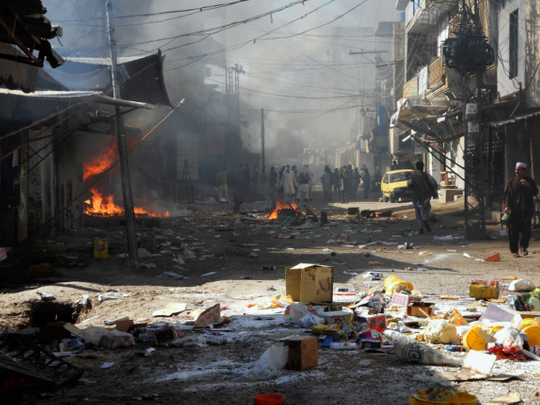
Peshawar, Pakistan: Authorities in northwestern Pakistan on Monday imposed a curfew in a town after a fresh round of sectarian violence left two people dead, officials said.
The move came after two people were killed at a rally in Kohat to protest against sectarian clashes on Friday that left the major city of Rawalpindi under curfew all weekend.
“Curfew has been imposed in Kohat with immediate effect and the army called in,” a senior security official in Peshawar told AFP.
Salim Khan Marwat, the police chief in Kohat, a garrison city in the northwestern province of Khyber Pakhtunkhwa, confirmed the curfew.
Violence erupted when activists from the Sunni Muslim organisation Ahl-e-Sunnat Wal Jamat (ASWJ) were demonstrating against the Rawalpindi clashes which left at least nine people dead.
“The activists were rallying against the Rawalpindi violence when unidentified gunmen opened fire on the procession from near a Shiite mosque in the area, killing two people,” Saleem Khan Marwat said.
Marwat said the ASWJ activists retaliated by firing bullets in the air, which sparked tension in the area.
Police and troops later cordoned off the area and ordered markets closed.
Friday’s violence in Rawalpindi erupted when a procession of Shiite Muslims marking the most important day of the mourning month of Muharram coincided with a sermon at a nearby Sunni mosque.
The authorities imposed a curfew on Rawalpindi, twin city of Islamabad, which was only lifted on Monday morning. A ban on gatherings of more than five people remains in force.
Troops were also deployed in Rawalpindi as well as in the southern Punjab city of Multan to keep the peace.
Pakistan is facing rising sectarian violence, with Sunni militant groups linked to Al Qaida and the Taliban often attacking gatherings of Shiites, who make up some 20 percent of the country’s overwhelmingly Muslim population.












